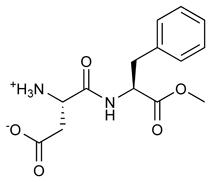A review of sudden death in young athletes, reported in the New England Journal of Medicine (2003:1064) made no mention of aspartame as a primary cause or suspected contributory factor, especially when demonstrable disease was absent. This problem has assumed great public health importance, because two-thirds of the population, especially those who are watching their weight, are consuming "diet" products containing this chemical.
I have repeatedly reported the serious cardiovascular, neuropsychiatric, metabolic, and other adverse effects of aspartame products in my earlier publications. Among the first 1,200 aspartame reactors in my database, 16 percent had symptomatic arrhythmias, 7 percent had atypical chest pain, and 5 percent had hypertension.
My report includes one hypertensive patient who had a complete heart block within hours after consuming his first diet cola. Another patient had undergone unsuccessful radiofrequency ablations in the heart before anyone was aware that he had aspartame disease. In addition, pheochromocytoma, a usually benign, vascular tumor, was suspected in several aspartame reactors.
The issue of sudden death related to aspartame and its breakdown products has been raised a number of times, particularly among previously healthy people. Over the years, I have detailed the release of norepinephrine, epinephrine, dopamine, and free methanol by aspartame; a host of related pathophysiological conditions (e.g., cumulative formaldehyde adducts derived from aspartame in tissue proteins and nucleic aids; excessive insulin release); direct oropharyngeal absorption from gum and breath fresheners; and the increasing problem of aspartame addiction.
The likelihood of pulmonary hypertension induced by the vasoconstrictive effects of aspartame products also has been considered. It is relevant that 110 aspartame reactors experienced unexplained shortness of breath (dyspnea) and that they usually improved promptly after abstinence. Moreover, one 27-year-old woman was found to have primary pulmonary, hypertension upon autopsy.
The need for clinicians and corporate-neutral investigators to evaluate the contributory role of aspartame in cardiopulmonary disorders and sudden death, along with drug interactions with aspartame, is underscored by the frequency of attributing unexpected deaths to "causes yet to be determined."
COPYRIGHT 2003 Vegetus Publications
COPYRIGHT 2005 Gale Group



